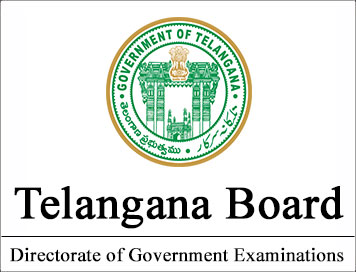Telangana State Board CLASS-12 Syllabus - Logic
Disclaimer: This website is NOT associated with CBSE, for official website of CBSE visit - www.cbse.gov.in
(Download) Telangana Board Exam CLASS-12 Syllabus
Exam Name : Telangana Board Exam CLASS-12 Syllabus
Subject : Logic
Year : 2010-11
INTERMEDIATE SECOND YEAR
LOGIC SYLLABUS w.e.f 2010-11
Unit-I Induction:
Definitions of induction and Deduction – Need and importance of induction – Uses of induction – Inductive method – Inductive Leap – Problem of induction – Kinds of induction a) Perfect induction b) Imperfect induction – Scientific inductive methods its stages – Non scientific methods of inquiry a) Intuitive method b) Method of Tenacity c) Method of authority – Difference between Scientific method and non scientific method – Paradox of inference – Relation between deduction and induction.
Unit – II Methods of Enquiry
Definitions of enquiry: 1) Methods followed in social sciences a) Case History method i) Pre-natal development ii) Post – natal development b) Method of interview c) Method of Questionnaire d) Statistical method e) Field investigation method 2) Methods followed in Physical and Biological Sciences a) Experimental method b) Analytical method 3) Experimental methods of Mill a) Method of agreement b) Method of difference c) Joint method of Agreement & difference d) Method of Concomitant variation e) Method of Residues.
Unit – III Postulates of Induction
Definitions of Postulates 1) Law of uniformity – Kinds of uniformity a) Uniformity of Succession b) Uniformity of Co-existence 2) The law of universal causation a) Definition of Cause b) Plurality of Cause 3) The law of unity of nature – Can these postulates be proved?
Unit – IV Enumeration
Definitions of Enumeration – Kinds of Enumeration a) Simple Enumeration b) Complete Enumeration – Comparison of Simple Enumeration and Complete
Enumeration – Place of simple Enumeration in the formation of Hypothesis – Universals – Kinds of Universals a) Generic Universal b) Collective Universal c) Verbal Universal.
Unit – V Observation and Experiment
Definitions of observation – Kinds of observation a) General Observation b) Scientific Observation – Nature of Observation a) Observation is Selective b)
Observation is Analytical c) Observation is Attentive d) Observation is Purposive – Conditions of good observation – Fallacies of Observation a) Fallacy of Non-observation b) Fallacy of Mal-Observation – Definition of experiment – Natural experiment.
Unit – VI Analogy
Definitions of Analogy with examples – Kinds of Analogy a) Similarity of function b) Similarity of Structure – Strength of Analogical Argument – Value of Analogical Argument - Dangers of Analogy.
Unit – VII Hypothesis
Definition of Hypothesis with examples – Kinds of Hypothesis a) Explanatory Hypothesis b) Descriptive Hypotheses – Requirements of a valued Hypotheses – Crucial instance – Consilence of induction – Prediction – Barren Hypothesis – False Hypothesis – Working Hypothesis.
Unit – VIII Fallacies
Definitions of Fallacies a) Formal Fallacies b) Material Fallacies – Material fallacies a) Fallacy of Composition b) Fallacy of division c) Fallacy of Accident i) Direct Fallacy of accident ii) Converse fallacy of Accident – Fallacy of Non-Sequitur – Fallacy of Post hock-ergo propter hock – Begging the question (or) Petitio-prinicipii a) Repetition of the same meaning in difference works b) Hysteron Proteron – Fallacy of Hasty Generalization.
Click Here to Download
Courtesy: Telangana Board
